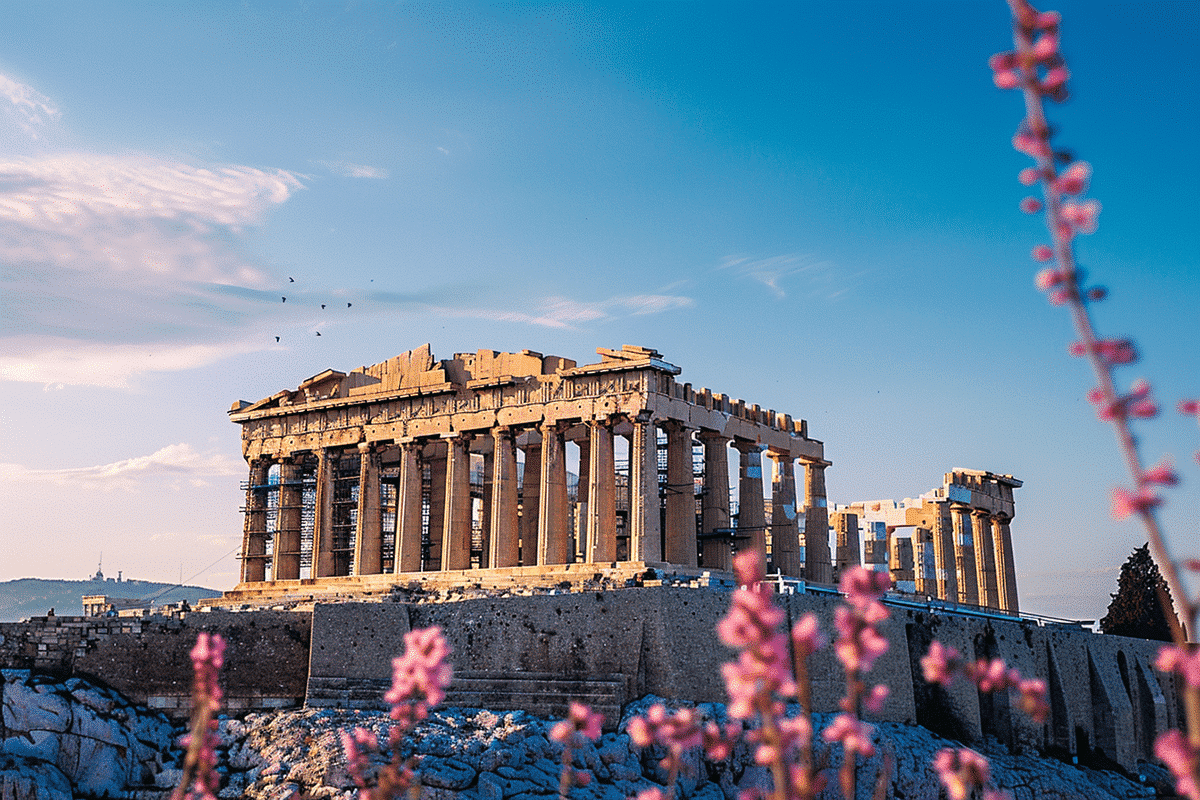Greece’s Culture Ministry took decisive action this week by closing the Acropolis, the nation’s most iconic cultural landmark, during the midday hours. This precautionary measure comes as southern Europe grapples with a relentless heat wave that has sent temperatures soaring.
Meteorologists have indicated that the scorching hot air masses originating from Africa will continue to blanket Greece with oppressive heat for several more days, with the heat wave expected to peak on Wednesday and Thursday. During these days, temperatures are anticipated to hit a blistering 43 degrees Celsius (109 degrees Fahrenheit).
The authorities responded by shutting down Athens’ famed Acropolis from noon to 5 p.m., aiming to shield visitors from the dangerous midday heat. Additionally, municipalities have opened air-conditioned indoor spaces to the public. Residents and tourists alike have been advised to avoid sun exposure during the hottest parts of the day and to stay hydrated by drinking water frequently.
Tourists eager to visit the Parthenon atop the Acropolis adjusted their plans, queuing early in the morning to avoid the worst of the heat. The Red Cross supported these efforts by distributing chilled bottled water and informational flyers to those waiting in line.
In neighboring Albania, the extreme heat prompted the government to reschedule working hours for civil servants, allowing some to work from home to avoid the harsh conditions. Italy, also caught in the heat wave’s grip, has expanded its list of cities under severe heat warnings, adding Palermo, Sicily. By Thursday, the northern city of Bolzano is expected to join this list.
In Verona, where temperatures hovered around 35 degrees Celsius (95 degrees Fahrenheit), sprinklers were deployed in public parks to provide relief to passersby, and tourists were encouraged to utilize public water fountains. Authorities recommended that elderly residents remain indoors during the hottest parts of the day and established a 24-hour emergency hotline to assist those in need.
The hot, dry conditions have also led to an increase in wildfires. In Greece, firefighters and water-dropping aircraft are battling several blazes, including a significant fire in a pine forest in Corinth. North Macedonia, which shares a northern border with Greece, is contending with dozens of wildfires that ignited within a 24-hour period. One major blaze has stretched across nearly 30 kilometers (21 miles). Responding to a call for assistance, firefighting aircraft from Serbia, Montenegro, Croatia, Romania, and Turkey have been deployed to help control the fires.
North Macedonia has declared a nationwide month-long state of emergency to mitigate the wildfire risk. Measures include a ban on access to forest areas to prevent further ignitions.
In western Turkey, firefighters, aided by over a dozen water-dropping aircraft, successfully brought a wildfire near the town of Bergama under control several hours after it started. The cause of the blaze, intensified by strong winds, remains unknown. Turkey’s largest city, Istanbul, issued a heat warning on Tuesday, predicting that temperatures would rise between 3-6 degrees Celsius (37-43 Fahrenheit) above seasonal norms until July 28.
In Spain, cities such as Granada and Toledo are expected to see temperatures reach 39 degrees Celsius (102 Fahrenheit) on Wednesday. Later in the week, some of the country’s southern regions could experience temperatures as high as 44 degrees Celsius (111 Fahrenheit).
As southern Europe continues to endure this intense heat wave, authorities across the region are taking various measures to protect residents and tourists from the extreme temperatures and associated risks. From closing cultural landmarks and adjusting working hours to deploying emergency services and setting up cooling stations, the focus remains on public safety and managing the adverse effects of the heat.




